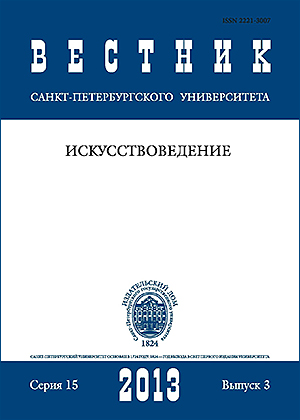Russian screenwriting in the 1910–1920s
Abstract
The main concern of the article is the early period of screenwriting in Russia (1900–1920s), that saw the origin of the screenplay form that still exists and functions in contemporary cinema. In the 1900s film scripts “were written on the cuffs” and remained anonymous while in the 1910s screenwriting attracted famous writers, the profession of a script writer appeared, screenplays were published in the press along with the other literary works. In the early 1920s, partly due to the growing role of the documentary cinema, a slogan “film without any script” appeared and became popular. A screenplay is now most commonly considered as an instrument to produce a film and nothing more, screenwriting is no longer considered as an art. The second birth of literary screenplay took place in the late 1920s and especially in the 1930s. “Emotional screenplay” created by Sergei Eisenstein and Alexander Rzheshevsky, that was not appreciated in the 1930s, favored the development of literary form of screenwriting that still remains in Russia nowadays.
Keywords:
script, pre-revolutionary cinema, screen version, documentary films, Dziga Vertov, Sergey Eisenstein
Downloads
References
Downloads
Published
How to Cite
Issue
Section
License
Articles of "Vestnik of Saint Petersburg University. Arts" are open access distributed under the terms of the License Agreement with Saint Petersburg State University, which permits to the authors unrestricted distribution and self-archiving free of charge.






